Speech-language pathologists (SLPs), often referred to as speech therapists, play a vital role in ensuring students can effectively communicate and succeed in their educational environment. School SLP services are essential for supporting students with speech, language, and communication challenges, but hiring the right professionals can be a daunting task for schools.
This blog outlines best practices for schools to hire speech therapists for schools, ensuring they find qualified and passionate candidates who can make a difference in students’ lives.
The Importance of School SLP Services
School-based speech therapy addresses a variety of challenges that can impact a student’s ability to participate fully in classroom activities and social interactions. These challenges include:
- Articulation Disorders: Difficulty pronouncing sounds correctly.
- Language Disorders: Problems with understanding or using language.
- Fluency Disorders: Issues such as stuttering.
- Social Communication Disorders: Difficulty with social aspects of communication, like understanding body language or conversational norms.
The work of speech therapists extends beyond individual students, benefiting the entire school by fostering a more inclusive and supportive learning environment.
Steps to Hire Speech Therapists for Schools
Finding the right speech therapist for your school requires careful planning and execution. Here’s a step-by-step guide to streamline the hiring process.
1. Determine Your School’s Needs
Start by assessing your school’s specific requirements:
- Student Demographics: Understand the types of speech and language challenges your students face.
- Workload: Decide whether you need a full-time, part-time, or contract-based SLP.
- Program Goals: Identify how the SLP will fit into your school’s broader educational and support services.
Clearly defining your needs will help you create a focused job posting and attract candidates with the right expertise.
2. Write a Comprehensive Job Description
An effective job description is critical to attracting qualified candidates. Include the following:
- Job Title: Clearly state the position as a school-based speech-language pathologist.
- Responsibilities: Outline duties such as conducting evaluations, creating individualized treatment plans, and collaborating with educators and families.
- Qualifications: Specify necessary certifications, such as a master’s degree in speech-language pathology, state licensure, and ASHA certification.
- Key Skills: Highlight essential traits like communication, problem-solving, and adaptability.
- School Information: Share details about your school’s mission, culture, and commitment to student success.
3. Leverage Multiple Recruitment Channels
To reach a diverse pool of candidates, use a variety of recruitment strategies:
- Online Job Boards: Post openings on platforms like EdJoin, SchoolSpring, and ASHA’s Career Portal.
- Social Media: Use LinkedIn, Facebook, and Instagram to share job opportunities and connect with potential candidates.
- University Partnerships: Collaborate with universities offering speech-language pathology programs to access recent graduates.
- Professional Organizations: Engage with groups like the American Speech-Language-Hearing Association (ASHA) to connect with certified professionals.
Expanding your reach increases your chances of finding the perfect fit for your school.
4. Screen and Interview Candidates
Once applications start coming in, follow a thorough screening process:
- Resume Review: Look for relevant experience, certifications, and any specialized skills in areas like fluency disorders or augmentative and alternative communication (AAC).
- Initial Interviews: Conduct phone or video interviews to evaluate candidates’ communication skills, enthusiasm, and fit for the school environment.
- Reference Checks: Speak with previous employers to gain insight into the candidate’s work ethic, professionalism, and impact on students.
5. Assess Practical Skills
During in-person or follow-up interviews, assess candidates’ practical abilities:
- Mock Scenarios: Present real-life challenges, such as creating a treatment plan for a student with a specific speech disorder.
- Role-Playing: Simulate collaborative meetings with teachers or parents to evaluate interpersonal skills.
- Case Study Analysis: Ask candidates to share examples of how they’ve successfully addressed a speech or language challenge in their past roles.
These exercises provide valuable insights into candidates’ expertise and approach.
6. Offer Competitive Compensation
To attract top talent, ensure your compensation package is competitive. Consider including:
- Salary and Benefits: Offer a market-aligned salary, health insurance, and retirement plans.
- Professional Development: Provide funding for continued education and certification renewals.
- Flexible Work Arrangements: Highlight options for remote work, flexible hours, or part-time schedules.
By offering attractive benefits, your school becomes a more appealing choice for qualified SLPs.
7. Support and Retain Your SLPs
Retention is just as important as recruitment. Create a supportive work environment by:
- Providing Resources: Ensure SLPs have access to necessary tools, materials, and technology.
- Encouraging Collaboration: Foster teamwork among therapists, educators, and administrators.
- Offering Mentorship: Pair new hires with experienced professionals for guidance and support.
Investing in your SLPs ensures long-term success for your school’s speech therapy program.
How Educational Therapy Professionals Can Help
At Educational Therapy Professionals, we specialize in connecting schools with highly qualified speech therapists. Our extensive network of certified professionals makes it easy for schools to find candidates who are passionate about improving student communication and learning.
Our services include:
- Candidate Sourcing: Access a network of experienced school-based speech therapists.
- Flexible Staffing Solutions: Choose from full-time, part-time, or temporary placements.
- Support for Schools: Get expert guidance on building and enhancing school SLP services.
Contact Educational Therapy Professionals today to simplify your hiring process and ensure your school has the best speech therapy support possible.
Hiring the right speech therapist for your school is a critical step in fostering student success. By following these best practices, schools can attract, evaluate, and retain top talent, creating a robust school SLP services program that benefits students, staff, and the entire educational community.





